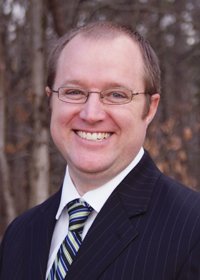
Journal Notes—July 2018
by Michael Hamline, Editor/ Published July 2018

Last year, the U.S. and its territories incurred severe damages from three major hurricanes—Hurricane Harvey in Texas, Hurricane Irma in Florida, and Hurricane Maria in Puerto Rico. Those three hurricanes should be viewed as a very serious reminder that Floridians need to be prepared for the 2018 hurricane season, which started June 1, 2018, and runs through November 30, 2018. According to the NOAA at www.noaa.gov/media-release/forecasters-predict-near-or-above-normal-2018-atlantic-hurricane-season, there is a 70-percent likelihood of 10 to 16 named storms (winds of 39 mph or higher), of which 5 to 9 could become hurricanes (winds of 74 mph or higher), including 1 to 4 major hurricanes (category 3, 4, or 5, with winds of 111 mph or higher).
Due to the aforementioned facts, the July issue begins coverage of what should be done to prepare your community before a hurricane hits and actions that should be taken after a hurricane strikes your association. These brief, but vital, tips can be found in the article, “When Disaster Strikes, Will Your Community Be Ready? Part I,” on page 36. The second part will appear in next month’s August issue. Also, the July through October issues will feature a Hurricane and Disaster Preparedness Directory that lists businesses by various categories that can help your community prepare beforehand and respond after a hurricane strike.
In the article “Death, Taxes, and Hurricanes,” authored by Jay Roberts with Becker, you can turn to page 50 and read several important items to implement prior to a hurricane making landfall and important steps to take after the hurricane to manage the restoration projects well.
Brie Peterson with Envera Systems establishes the elements to have in your community’s natural disaster security plan in her article, “Hurricane Safety and Security for a Community,” on page 56. Betsy Barbieux, CAM, CFCAM addresses the issue of automatic negative thoughts (ANTs) and how to replace them with correct thinking in her article, “Coping with Hurricane Stress, Part I,” on page 60. Part II will appear in the August issue.
Also, do not fail to read a compilation of laws—and legal analysis of these laws—that will affect your community this year in Kathy Danforth’s article, “Game Changes for 2018,” on page 6. Whether it’s hurricane preparedness or legal changes, FLCAJ wants you to know about these upcoming challenges and changes.
Editor

